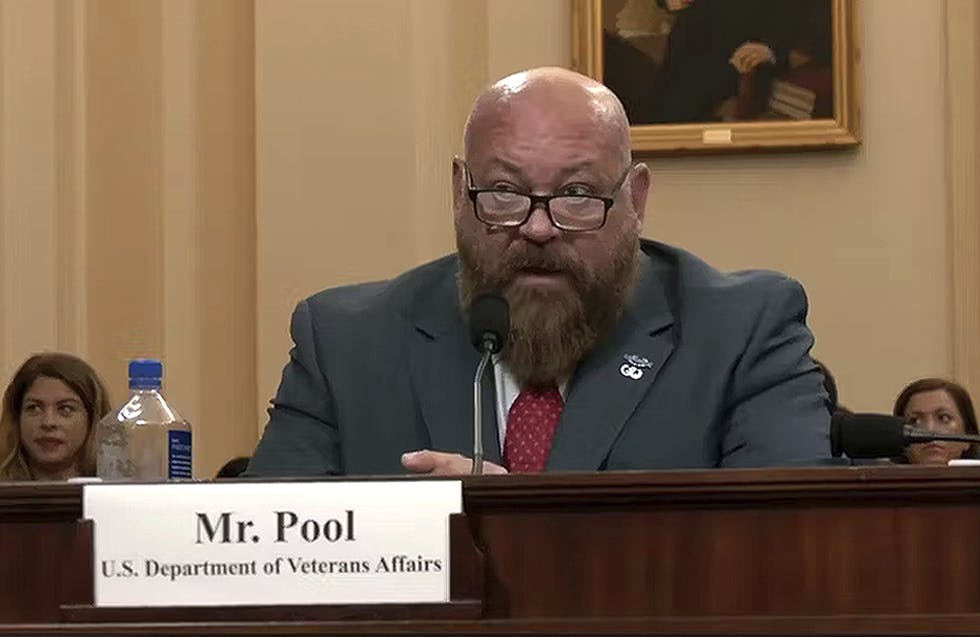DHA Sees Tech Helping Create ‘Person-Centered’ Health Care
DHA leaders said the agency is better serving patients through the use of partnerships and innovation.

Defense Health Agency (DHA) leaders are undergoing a modernization journey that has put greater emphasis on improving the patient experience and leveraging emerging technology.
At the 2024 AFCEA Health IT Summit, DHA officials said both technology and information capture are improving for patients to receive better care and a seamless patient record as they move from the battlefield to a medical facility and then back to civilian life.
As such, the challenges and demands for military medicine require a health system that is innovative and agile. Since DHA oversees 9.6 million beneficiaries, leaders say it is evermore important to create a system using a person-centric approach.
Office of the Surgeon General CDO Peter Huynh said that technology has evolved to give better care, but that combat medics will need better capabilities to deliver care on the battlefield.
“The most powerful military, most powerful army, has to have powerful medical capabilities,” Huynh said. “For our medicine, the medic is our most powerful medical system and weapon. How do we enable them and put them … with capabilities, with data that they can use?”
Lance Scott, CTO of the Federal Electronic Health Record Modernization (FEHRM) office, said health care leaders are focused on improving the patient experience by improving interoperability between providers and improving record-keeping.
“Patients care about one thing; that their record is as complete as it can be, that the records transfer from provider to provider to provider, that they have a better experience when they see the clinician,” Scott said. “DOD and VA, by default, are inherently transient organizations. They’ve just they got records everywhere. The more we can tap into those records, the more complete we can get care.”
Scott said that some of the solutions for sifting through the “haystack” of records between servicemembers and veterans include longitudinal natural language processing, which helps clinicians find the exact tools they need to provide care to patients. At DHA, that care does not start and end at the hospital.
“Public health is recognizing how do we get wellness into the patient’s health. How do we help these people make better decisions about their health, such that they don’t have to become a patient,” said DHA Public Health Directorate Deputy Director Sean Friendly at the event. “Part of our charge is getting ahead of the first sneeze.”
Friendly pointed to the Armed Forces Wellness Centers as a way to improve patient health beyond hospital visits, by providing them with resources and tools to help with issues like food insecurity. On the research side, Friendly said partnerships with other agencies can help with other health determents on concerns like climate change or infectious disease before they sprout into larger issues for servicemembers.
DHA Acting Deputy to the Deputy Assistant Director Naomi Escoffery echoed that sentiment, saying that a strong health care system is dependent on collaborations between government, academia and industry.
“Government doesn’t have all the answers. Industry doesn’t have all the answers, academia doesn’t have all the answers, but together, we have all the answers. It’s really about bridging that gap and forging relationships to be able to bounce things off each other and really decide how we’re going to connect to this very big problem,” Escoffery said.
This is a carousel with manually rotating slides. Use Next and Previous buttons to navigate or jump to a slide with the slide dots
-

VA's Platform One Powers Rapid Innovation to Bolster Digital Services
VA's Platform One accelerates software development timelines from weeks to hours, ultimately enhancing digital services for veterans.
5m read -

Doing More with Less is Muscle Memory for IRS, Former Deputy CIO Says
Darnita Trower discusses her experience, the legacy she’s left behind and how she pushed the IRS to modernize itself,
20m watch -

VA CIO Targets Modern IT and Smarter Workforce Alignment
Agency leaders told lawmakers they are focused on trimming legacy systems and restructuring its workforce to streamline operations.
3m read -

The Next AI Wave Requires Stronger Cyber Defenses, Data Management
IT officials warn of new vulnerabilities posed by AI as agencies continue to leverage the tech to boost operational efficiency.
5m read








